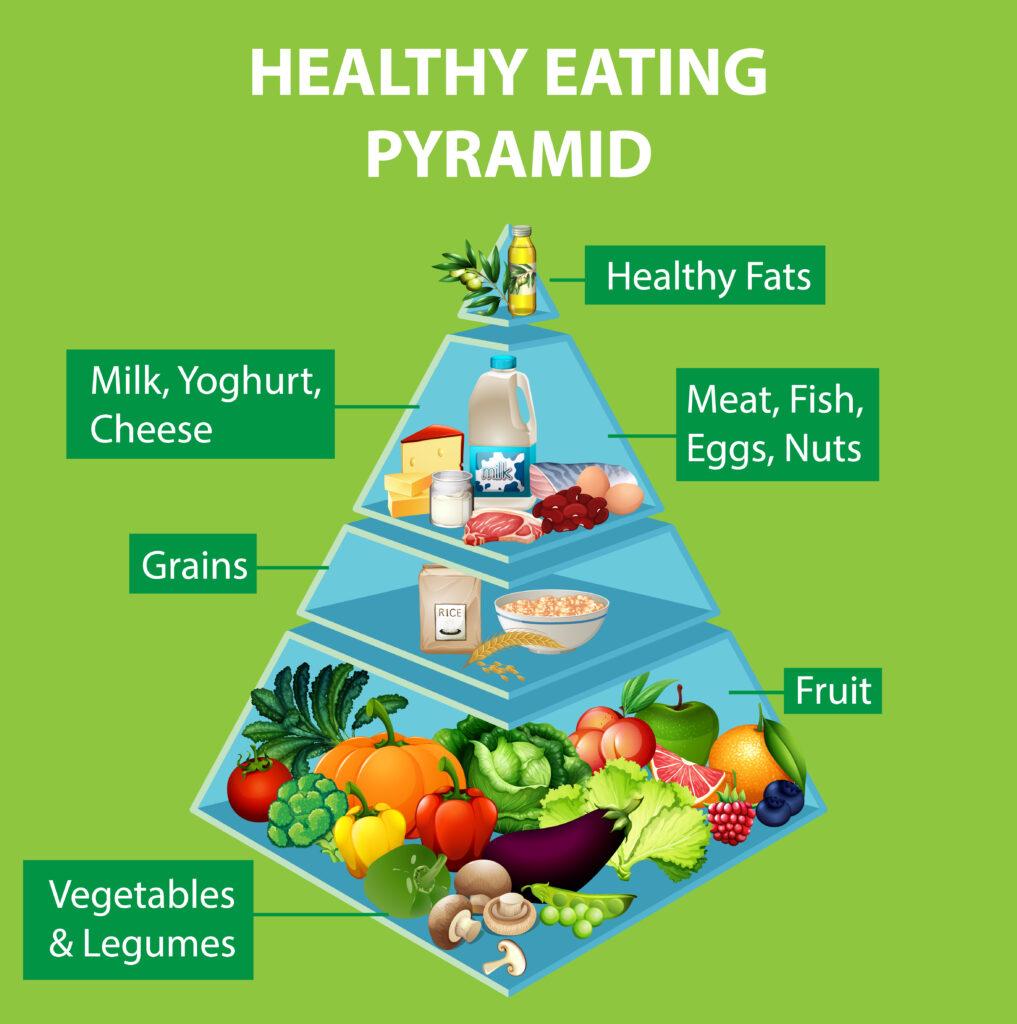
Introduction:
Losing weight can be a challenging journey, but with the right approach, you can achieve your dream body and improve your overall well-being. However, being aware of common weight loss mistakes that may hinder your progress is crucial. In this article, we will explore 20 mistakes you should steer clear of to ensure effective and sustainable weight loss.
Neglecting a Balanced Diet:
One of the most significant mistakes people make when attempting to lose weight is neglecting a balanced diet. Instead of opting for fad diets or extreme restrictions, focus on consuming a variety of nutrient-dense foods. Incorporate lean proteins, whole grains, fruits, vegetables, and healthy fats into your meals to support your weight loss goals.
- Incorporate nutrient-dense foods like lean proteins, whole grains, fruits, vegetables, and healthy fats.
- Avoid fad diets and extreme restrictions for long-term success.
Skipping Meals:
Contrary to popular belief, skipping meals does not promote weight loss. In fact, it can have adverse effects on your metabolism and lead to overeating later in the day. Make sure to have regular, portion-controlled meals to keep your energy levels stable and prevent excessive hunger.
- Have regular, portion-controlled meals to stabilize energy levels and prevent overeating later.
- Avoid skipping meals as it can negatively impact metabolism.

Overlooking Portion Sizes:
Mindlessly eating oversized portions is a common blunder in weight loss journeys. Pay attention to portion sizes and practice mindful eating. Use smaller plates and bowls to control your portions and listen to your body’s signals of fullness.
- Pay attention to portion sizes and practice mindful eating.
- Use smaller plates and bowls to control portions and avoid overeating.
Excluding Exercise:
Physical activity is crucial for successful weight loss. Engaging in regular exercise not only burns calories but also helps build lean muscle mass, boosting your metabolism. Incorporate a mix of cardiovascular exercises, strength training, and flexibility exercises into your routine for optimal results.
- Engage in regular Exercise to burn calories and build lean muscle mass.
- Include a mix of cardiovascular exercises, strength training, and flexibility exercises.
Lack of Planning:
Failing to plan is planning to fail. Without a structured approach, it’s easy to fall off track. Create a weekly meal plan and schedule your workouts in advance. You can stay organized and make healthier choices throughout the week.
- Create a weekly meal plan and schedule workouts in advance for better organization.
- Planning ahead helps make healthier choices throughout the week.
Ignoring Hydration:
Adequate hydration is often overlooked in weight loss efforts. Drinking water not only helps regulate your body’s functions but also aids in digestion and curbs unnecessary snacking. Aim to drink at least eight glasses of water per day and limit your intake of sugary beverages.
- Drink at least eight glasses of water per day for proper hydration.
- Limit intake of sugary beverages that add unnecessary calories.
Relying on Supplements Alone:
While supplements can support your weight loss journey, relying solely on them is a mistake. Focus on nourishing your body with whole foods and use supplements as a complementary aid. Consult a healthcare professional before incorporating any supplements into your routine.
- Use supplements as a complementary aid, not a sole weight loss solution.
- Consult a healthcare professional before incorporating any supplements into your routine.
Lack of Sleep:
Sleep deprivation can sabotage your weight loss efforts. Poor sleep affects hormone regulation, leading to increased appetite and cravings. Aim for 7-8 hours of quality sleep each night to support your body’s natural processes.
- Aim for 7-8 hours of quality sleep each night.
- Poor sleep affects hormone regulation, leading to increased appetite and cravings.

Healthy eating pyramid chart illustration
Overlooking Mindful Eating:
Eating mindfully can transform your relationship with food. Slow down, savor each bite, and pay attention to your body’s hunger and fullness cues. By practicing mindful eating, you can avoid emotional or stress-induced eating and make healthier choices.
- Practice mindful eating to transform your relationship with food.
- Slow down, savor each bite, and pay attention to hunger and fullness cues.
Neglecting Strength Training:
Strength training is often underestimated in weight loss journeys. It not only helps build muscle but also increases your basal metabolic rate, leading to higher calorie burn even at rest. Incorporate strength training exercises into your routine two to three times a week.
- Incorporate nutrient-dense foods like lean proteins, whole grains, fruits, vegetables, and healthy fats.
- Avoid fad diets and extreme restrictions for long-term success.
Overemphasizing the Scale:
Weight loss is not solely determined by numbers on a scale. Instead of fixating on weight alone, focus on other progress indicators like improved energy levels, increased strength, and better overall health. Celebrate non-scale victories along your journey.
- Focus on non-scale victories like increased energy levels, improved strength, and better overall health.
- Weight loss is not solely determined by numbers on a scale.
Allowing Slip-Ups to Derail Progress:
No one is perfect, and occasional slip-ups are normal. However, it’s crucial not to let them derail your progress entirely. Instead of dwelling on a setback, acknowledge it, learn from it, and get back on track. Remember, sustainable weight loss is about consistency and making positive choices in the long run.
- Acknowledge and learn from occasional slip-ups rather than letting them derail your progress.
- Consistency and positive choices, in the long run, are key to sustainable weight loss.
Ignoring the Importance of Support:
Embarking on a weight loss journey can be challenging, but you don’t have to do it alone. Seek support from friends, family, or a community of like-minded individuals. Having a support system can provide motivation, accountability, and valuable advice to help you stay focused and motivated.
- Seek support from friends, family, or a community to stay motivated and accountable.
- Having a support system provides valuable advice and encouragement.
Neglecting Self-Care:
Self-care plays a significant role in overall well-being and weight loss. Prioritize activities that help you relax and reduce stress, such as practicing mindfulness, engaging in hobbies, or getting sufficient rest. When you take care of your mental and emotional health, it becomes easier to make healthier choices.
- Prioritize activities that reduce stress and promote relaxation.
- Take care of your mental and emotional well-being to make healthier choices.
Impatience and Unrealistic Expectations:
Weight loss is a gradual process that requires patience and realistic expectations. Avoid falling into the trap of expecting instant results or setting unattainable goals. Instead, focus on sustainable changes, and small milestones, and celebrate every step forward on your journey.
- Practice patience and set realistic goals for sustainable weight loss.
- Focus on small milestones and celebrate every step forward.
Not Tracking Progress:
Monitoring your progress provides valuable insights and motivation. Keep a record of your meals, exercise, and body measurements to identify patterns and celebrate achievements.
Tracking your progress is an essential tool for successful weight loss. It allows you to monitor your behaviors, identify patterns, and make necessary adjustments to achieve your goals. Here are some key points to consider when it comes to tracking progress:
- Meal Tracking: Keep a food diary or use a mobile app to record your meals and snacks. Include details like portion sizes, ingredients, and cooking methods. This helps you become more aware of your eating habits and identify areas where you can make healthier choices. It also allows you to track your calorie intake and ensure you’re sticking to your desired caloric deficit.
- Exercise Tracking: Record your exercise sessions, including the type of activity, duration, and intensity. This helps you stay accountable and motivated. You can track your progress by noting the number of repetitions, weights lifted, or distances covered. Over time, you’ll be able to see improvements in your strength, endurance, and overall fitness level.
- Body Measurements: Alongside tracking your weight, consider measuring other body metrics such as waist circumference, hip circumference, and body fat percentage. These measurements provide a more comprehensive view of your progress than just relying on the scale. Remember that changes in body composition, such as gaining muscle and losing fat, may not always be reflected in your weight alone.
- Photos: Taking progress photos at regular intervals can be a powerful visual tool. Comparing your current photos with older ones allows you to see how your body has transformed over time, even when the scale doesn’t show significant changes. Photos provide a tangible reminder of your progress and can be a great source of motivation on days when you feel discouraged.
- Celebrating Achievements: Tracking your progress helps you acknowledge and celebrate your accomplishments, no matter how small they may seem. Recognize milestones such as reaching a certain weight, completing a fitness challenge, or consistently following your healthy eating plan. Rewarding yourself for your hard work boosts your motivation and reinforces positive habits.
- Identifying Challenges: Tracking your progress can reveal patterns and challenges that hinder your weight loss efforts. You may notice trends like emotional eating, certain triggers, or specific times of the day when you’re more prone to cravings. Identifying these challenges allows you to develop strategies to overcome them and make necessary adjustments to your lifestyle. Falling for Fade Diet: Beware of trendy diets that promise extraordinary results. Opt for evidence-based approaches that promote a balanced, sustainable lifestyle. Falling for fad diets can be tempting, as they often promise rapid weight loss or miraculous transformations. However, it’s crucial to approach these diets with caution. Many fad diets are based on restrictive and unbalanced eating patterns that are difficult to sustain long-term. They often lack scientific evidence and can lead to nutrient deficiencies, metabolic imbalances, and negative effects on overall health. Instead, opt for evidence-based approaches to weight loss that promote a balanced and sustainable lifestyle. Focus on consuming a variety of whole, nutrient-dense foods, practicing portion control, engaging in regular physical activity, and making gradual, long-term changes to your habits. This way, you can achieve lasting results and prioritize your overall well-being.
Neglecting Mental and Emotional Well-being:
Weight loss is not just about physical changes but also about mental and emotional well-being. Address any underlying emotional issues or seek professional support if needed. Practice self-care and cultivate a positive mindset to support your weight loss journey.
Comparing Yourself to Others:
Each person’s weight loss journey is unique. Avoid comparing yourself to others as it can lead to discouragement or unhealthy habits. Focus on your progress and celebrate your achievements, no matter how small they may seem.
Lack of Patience and Persistence:
Weight loss takes time and effort. Avoid getting discouraged by slow progress or occasional setbacks. Stay patient, stay persistent, and remind yourself that sustainable weight loss is a gradual process.
Conclusion:
By avoiding these 20 weight loss mistakes, you can take a smarter approach toward achieving your dream body. Remember, sustainable weight loss is not just about quick fixes but about making lifestyle changes that promote a healthier and happier you. Embrace a balanced diet, regular exercise, proper sleep, stress management, and a positive mindset. Consult with healthcare professionals for personalized guidance, and most importantly, be patient and persistent on your journey to achieving your weight loss goals.




One Comment on ““Slim Down Smarter: Steer Clear of These 20 Weight Loss Blunders to Achieve Your Dream Body!””
Comments are closed.